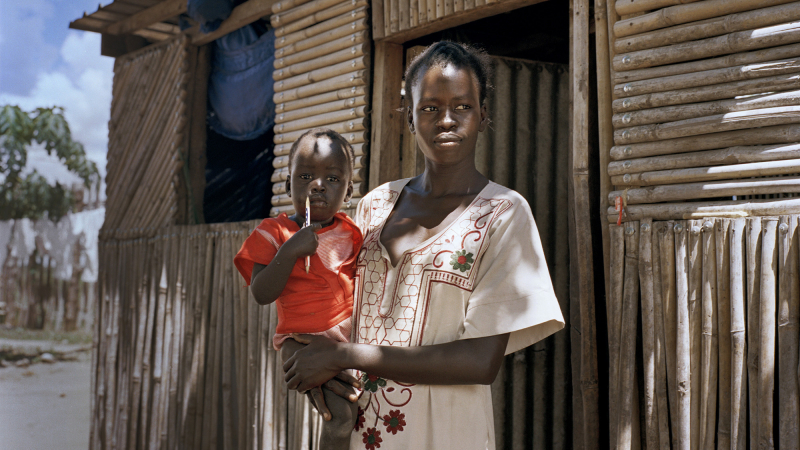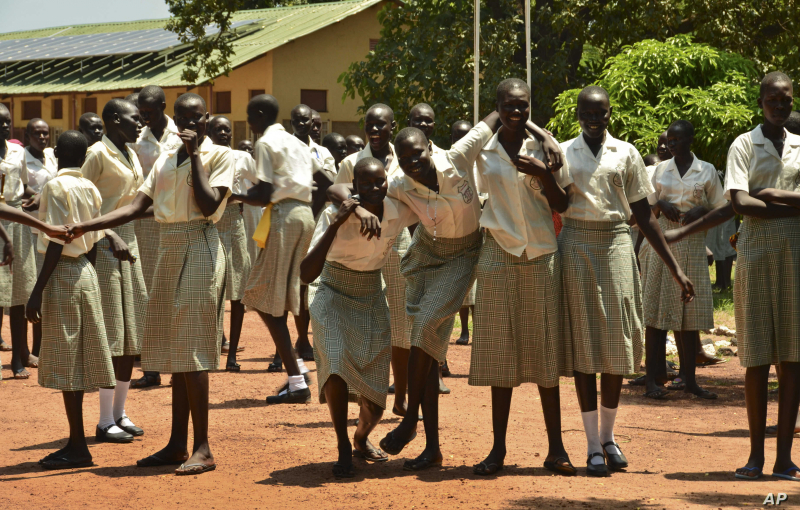Marriage Practices
South Sudan has essentially no dating customs (as they are known in the English-speaking West). Socializing alone in public with a person of the opposite gender is frowned upon unless the two are married. In some cases, especially for females, such behavior may be punishable. In general, a couple can only publicly discuss their relationship after they have settled down and made an engagement announcement.
Marriage customs in South Sudan differ substantially depending on an individual's ethnicity, tribe, and religion as well as their financial status and line of work. Women are expected to have children relatively soon after getting married because procreation and expanding clan networks are typically the main goals of marriage.
Parents' consent is crucial because marriage is viewed as the joining of two families that broadens and strengthens communities. When selecting potential mates, numerous aspects are taken into account. People are mostly worried with the race and lifestyle of their family (e.g. cattle herders, merchants, etc.). The younger South Sudanese generation is reportedly growing less compliant with their parents' wishes over who they would marry, according to some reports. Men frequently return to South Sudan, get married, and then bring their newlywed wife back to their host nation.
When a couple gets engaged, both families make sure to behave nicely and keep up their good ties with everyone in the neighborhood. If there is any sort of conflict, quarrel, or suspicion about the reputation of the other family, marriages may be postponed or prevented. The relatives may share meals together, exchange gifts, or give a bride price or dowry to the bride's family to formalize the engagement and strengthen the tie between the families. The groom's entire extended family may be required to contribute to this substantial dowry (e.g. 100 cows). The dowry's conditions vary from tribe to tribe, and it's not necessarily in the form of property or cash.
For instance, the groom's family might consent to cultivate the farmland of the bride's family. This is meant to make up for the family's loss of the labor that their daughter or sister provided when she left to get married. The cost of dowries has increased significantly during the last few years. South Sudanese family might need to wait a number of years between each son's marriage in order to amass the required wealth.
Interethnic and tribal marriages do happen, however attitudes toward them differ amongst cultures. In addition, it might be challenging to navigate the varied bride price customs of several tribes. For instance, a Zande man could find it challenging to wed a Dinka or Nuer lady because the tribes have distinct traditional ways of subsisting; the wedding would be complicated, and there would be a sizable dowry. The process of getting married outside of their tribe may be simpler for Nuer men.
For the most part, a traditional ceremony will be followed by a Christian ceremony. There are other more cultural customs surrounding marriage, though, that may or may not be observed. In South Sudan, for instance, polygyny can exist among people from all socioeconomic classes. This marriage is polygamous, meaning the guy may have several wives, typically two or three. The custom of wife inheritance may also be practiced by tribes in Nilotic. According to this tradition, if a man passes away, his brother will take his widow as a second wife. Incest, however, is strongly disapproved of. Tribes can go back many generations to find their ancestors to stop this.
Divorce is extremely uncommon because marriage typically cements the everlasting fusion of two families. The practice is further complicated by the dowry custom. In exchange for the exorbitant amount he originally paid for his bride, the guy typically receives automatic custody. This may discourage women from divorcing. In some cases, it may be more practical to return the dowry to the groom's family and separate if the couple has never had children. However, stepmothers are more likely than stepfathers to raise South Sudanese children.












